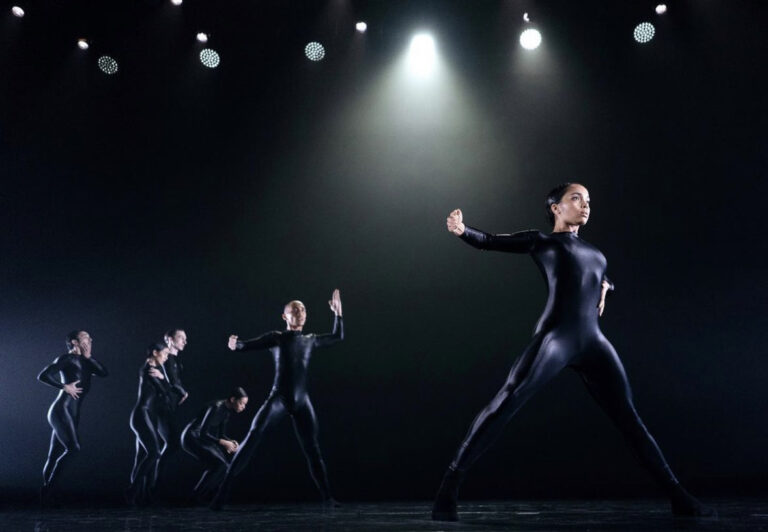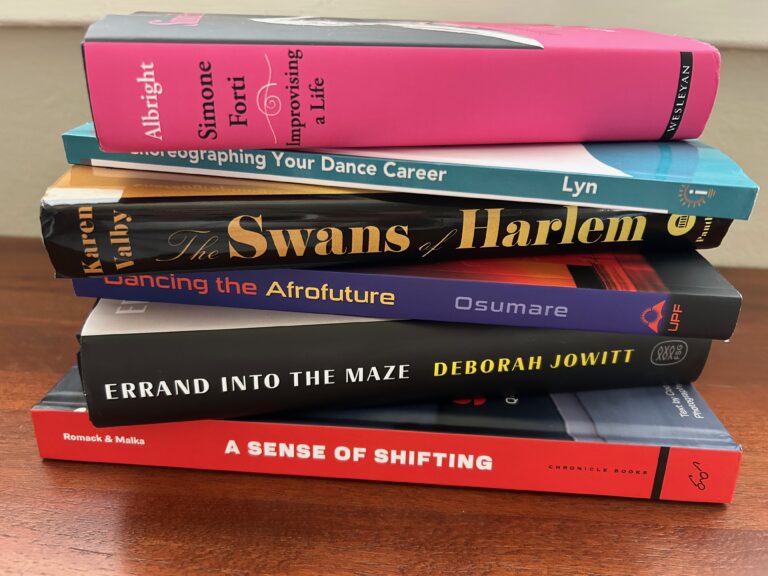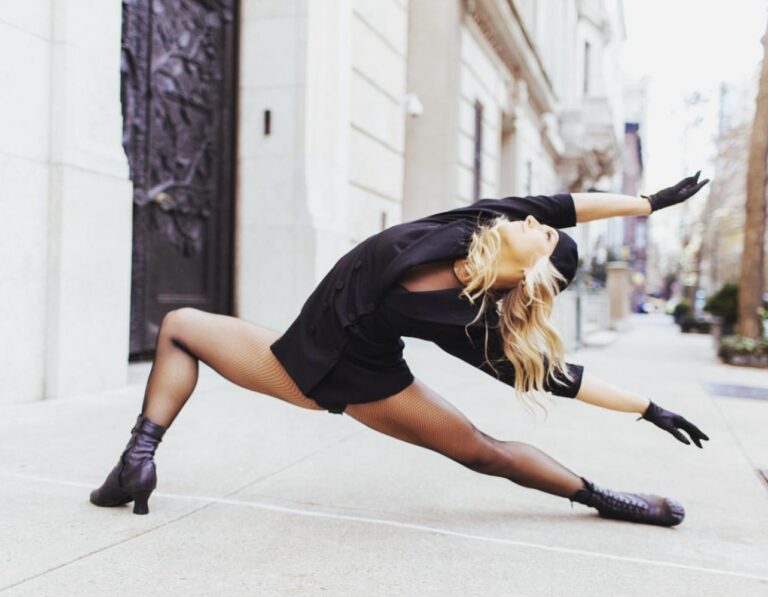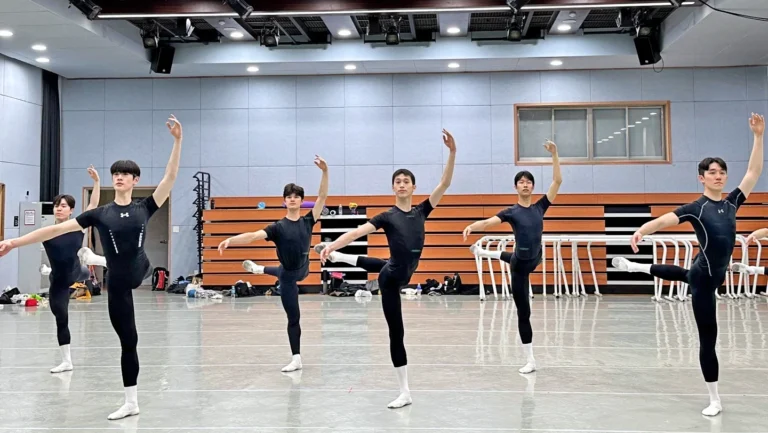Three owner-tested ideas, with marketing and budget tips
Valerie Stead Potsos hosts a popular workshop for Girl Scouts each year at her studio.
With new studios popping up on every corner, studio owners can’t expect to build a successful business simply by teaching classes and putting on a yearly recital. To stay one step ahead of the competition, it’s important to find new ways to market your business. Organizing one-shot events for your own students, potential customers or the community may not turn a hefty profit, but these events can boost studio morale, give you a higher profile in the community, bring in new enrollment and occasionally generate extra revenue. That makes it worth all the detailed hands-on preparation that a successful event requires.
As you’re planning an event, keep in mind your business goals and budget: Are you looking to set your studio apart? Attract more customers? Wow the ones you have? Get written up in the newspaper? Give back to your community? To give you a jump start on organizing a successful event, Dance Teacher talked to studio owners about three types of events they’ve run; they share tried-and-true tips and financial breakdowns.
IN-STUDIO EVENTS Taking time to show your clientele some appreciation is a great way to reaffirm your (and their) loyalty. Organizing a master class, studio sleepover or wine-and-cheese parent social gives you the chance to address a specific need—and a business opportunity—within your own dance community. Allison Evans, owner of Elite Studio of Dance in Elk Grove, California, brings in a guest artist for ballet, contemporary or hip-hop master classes nearly every month for her 300 students. Airfare, hotel bills and the guest artist’s master class fee clock in around $2,000. Evans charges an attendance fee from $15 to $35 per student, depending on the guest artist. Although she usually doesn’t break even financially, she counts the events as a worthwhile investment because of the huge improvement she sees in her students’ technique and performance.
Tried-and-true tips: After four years of consistently losing money on the master classes, Evans began including a mandatory $25 monthly fee for them in her competition team’s contracts, regardless of whether any of those 75 students attend. She also offers to house the guest artists herself, which can save her around $500. Evans makes sure to pepper her guest artist lineup with instructors who will ensure high attendance. “We had a couple of Justin Bieber’s backup dancers come in, and that master class had a record attendance of 50 kids!” says Evans. Such well-attended master classes even reap the occasional profit.
Don’t forget: liability insurance.Whenever you run an event outside of your regular classes, check with your insurance agent that visiting teachers or members of the public attending or participating in the event are covered by your policy. If they’re not, you may need a separate rider, or have independent contractors list you as an additional insured on their liability insurance, for instance.
IN-STUDIO EVENTS OPEN TO THE PUBLIC classes headed by studio parents, summer dance camps and workshops are perfect opportunities for you to introduce outsiders to your space and dance community, potentially increasing your enrollment and adding to your bottom line. At Dancer’s Edge Dance Studio in Dexter, Michigan, studio owner Valerie Stead Potsos offers an annual Girl Scout workshop, at which local Girl Scouts can earn their dance patch. The total cost for Potsos is relatively low: $400 covers hiring a few teachers to help out at the hour-and-a-half workshop, as well as purchasing rhinestoned “Girl Scouts Rock” T-shirts to sell to workshop participants. Potsos charges $5 a head (the optional T-shirts are $15), and can count on 90–120 participants signing up ahead of time, which results in at least a small chunk of extra revenue.
Tried-and-true tips: Potsos offers 5 percent off classes at her studio for any Girl Scout who attends, but she makes sure to put a deadline on the sign-up incentive. She’s observed a 10 percent bump in class registrations each year, thanks to the workshop.
Don’t forget: Targeted advertising is key. When the University of Michigan held a Girl Scout day, Potsos was there to hand out flyers. She keeps an eye on the dates of Girl Scout roundups, too, and asks the troop leader ahead of time if she can advertise at them.
COMMUNITY EVENTS Raising your studio’s community visibility with a small- or large-scale fundraiser can be expensive. But in return, you can get fresh marketing, positive associations with a charity or cause and increased community awareness about your studio. Student-performed dinner theater shows and Boys & Girls Clubs of Amercia co-chaired dances allow you to give back to the community and reach a potentially new demographic.
Metropolitan Ballroom’s Ballroom Battle pairs figures in the community with dance instructors to raise YMCA funds.
Partnering with another business or nonprofit can defray some of the costs. Clément Joly, who runs Metropolitan Ballroom in Charlotte, North Carolina, was approached by the local YMCA to help organize an event called Ballroom Battle. Modeled after “Dancing with the Stars,” it raises money for the Y’s financial-aid fund for kids. For last November’s event, Joly offered the 10 participants (well-connected community figures) five free dance lessons—for which Joly and his instructors donated their time and studio space. Joly doesn’t see an immediate increase in enrollment as a result of his studio’s involvement, but his business is certainly on the lips of the community afterward. The local newspaper always reports the story, and the Y posts a full write-up on its website, with dance instructor bios, photos and video from the event. “People remember us and may come in months later when they need a choreographed wedding dance,” says Joly.
Tried-and-true tips: Joly asked the Ballroom Battle participants to schedule their lessons during the day, so that the evening, the studio’s busiest time, was kept open for the approximately 150 paying customers. And once someone is in the studio, upselling is always a possibility. Joly suggested to the competitors that they employ the studio’s instructors at a discounted rate for any lessons over the five free ones.
Don’t forget: It’s important to market your business’ charitable work, but don’t be too heavy-handed. It’s fine to send out a press release, update your website and Facebook page with related information, send an e-mail with pictures from the event or even start a Pinterest board dedicated to the charitable organization you’re supporting. DT
Rachel Rizzuto is an assistant editor for Dance Teacher. She holds a BFA in dance and a BA in English from the University of Southern Mississippi.
Photos from top: by Jeremy Ross; by Robert Lahser, courtesy of The Charlotte Observer




